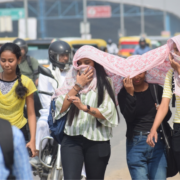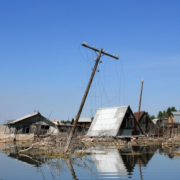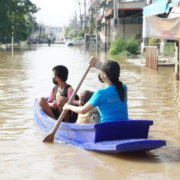Archive | Climate change RSS feed for this section
Climate change, Environment
 Climate change, Finance sector development
Climate change, Finance sector development
 Climate change, Finance sector development
Climate change, Finance sector development
 Climate change, Health
Climate change, Health
 Agriculture and natural resources, Climate change
Agriculture and natural resources, Climate change
 Climate change, Energy, Environment, Transport
Climate change, Energy, Environment, Transport
 Climate change, Finance sector development
Climate change, Finance sector development
 Climate change, Finance sector development
Climate change, Finance sector development
 Climate change, Environment, Health
Climate change, Environment, Health
 Climate change, Environment
Climate change, Environment

Natural Capital: Valuing Nature to Protect and Restore Ecosystem Services for Sustainable Development

Ecosystems are vital components of natural capital, encompassing soil, geology, air, water, minerals, and all living organisms.
Funding a Resilient Future: Bridging Climate Financing Gaps

Climate finance is at the forefront of the climate change discourse as a critical tool for achieving mitigation and adaptation outcomes.
How Can Policy Makers Help Strengthen Corporate Climate Disclosure to Scale Up Private Climate Finance?

Investors need better information on where to direct their investments to have the biggest impact on climate goals.
Unraveling the Health Risks of Climate Change

Only recently has the international community begun to recognize that the climate crisis represents a health emergency.
Climate-Smart Agriculture for a Sustainable Future

Climate-smart agriculture is crucial for increasing farmers' resilience to climate change and promoting a sustainable future for agricultural sectors.
Can electric vehicles lead the way to a sustainable future?

Electric vehicles have increased through rapid efforts by governments to encourage environmentally friendly vehicles in the transportation sector.
Mitigating climate-related sovereign risk to accelerate action on the climate emergency

Governments and financial authorities should implement financial sector policies to scale-up investment in climate adaptation and resilience
Asia in need of dialogue for scaling up climate transition finance

Transition finance is one of the most challenging but underdeveloped aspects of climate finance.
COP28 offers outlook for building climate-resilient health systems

The impacts of climate change on human health are wide-ranging.
COP28: Commitments, contradictions, contention, and challenges
By Jeetendra Prakash Aryal, Tetsushi Sonobe, Augusto Becerra Lopez-Lavalle and Dil Rahut. Posted December 14, 2023

The 28th Conference of the Parties (COP28) showcased significant advancements but also exposed new commitments, contradictions, contentions, and challenges.


Search
Subscribe / Connect to Asia Pathways
Subjects
- Agriculture and natural resources
- Blog
- Capacity development
- Climate change
- Economics
- Education
- Energy
- Environment
- Finance sector development
- Gender
- Governance and public sector management
- Health
- Industry and trade
- Information and Communications Technology
- Infrastructure
- Miscellaneous
- Population
- Poverty
- Private sector development
- Regional cooperation and integration
- Sanitation
- Social development and protection
- Transport
- Uncategorized
- Urban development
- Video Blog
- Water
Recent Posts
- Transforming ASEAN: Advancing Regional Integration, Social Inclusion, and Environmental Sustainability
- Development of the Creative Economy in Asia and the Pacific
- Kashima City’s Great Transformation: Where Industry Meets Community
- Mechanization Driving the Future of Agriculture in Asia
- Natural Capital: Valuing Nature to Protect and Restore Ecosystem Services for Sustainable Development




Recent Comments